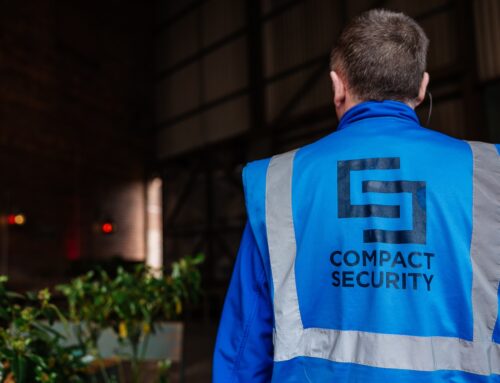The security landscape is continually evolving, driven by advances in technology, shifts in societal expectations and emerging threats. Today’s security providers must navigate a rapidly changing environment characterised by innovative technologies and new methods. These advancements are transforming the way security professionals protect assets, individuals, and communities, and this article will explore some of these latest trends in security; focusing on cutting-edge technologies and methods that are shaping the future of the industry.
Integration of Artificial Intelligence and Machine Learning
Artificial Intelligence (AI) and Machine Learning (ML) are at the forefront of technological advancements across multiple domains, and the security industry has started to embrace them with open arms. AI-powered systems can analyse vast amounts of data to identify patterns and anomalies that might indicate security threats. From facial recognition software to predictive analytics for crime prevention, these technologies are enhancing the capabilities of law enforcement, security personnel and systems.
For instance, AI can be used to monitor CCTV footage in real-time, identifying suspicious behaviours and alerting operators to potential threats. Machine Learning algorithms can learn from past incidents to anticipate and prevent future security breaches, providing a proactive rather than reactive approach to security.
The Rise of Cybersecurity Measures
As the world becomes increasingly digitised, cybersecurity has emerged as a crucial facet of the security landscape. Cyber threats are evolving in sophistication, prompting security providers to develop advanced cybersecurity measures. These measures include next-generation firewalls, intrusion detection systems, and robust encryption practices to protect sensitive data.
Organisations are also employing Security Operations Centers (SOCs) that operate round the clock, using advanced software to monitor, analyse, and respond to cyber threats. Additionally, the concept of “security by design” is gaining traction, ensuring that cybersecurity measures are integrated into products and systems from the outset.
Compact Security Services have long predicted the threat that an increasingly connected world poses. We have invested heavily our own cybersecurity measures and are continually assessing the evolving threat to our clients and other stakeholders.
Adoption of Internet of Things (IoT) Security Devices
The Internet of Things (IoT) has introduced a new paradigm in security, with devices connected to the internet becoming integral to security infrastructure. Smart cameras, sensors, and access control systems can communicate with each other, creating a cohesive and responsive security network.
IoT devices can automatically respond to changes in the environment, such as locking doors if a threat is detected or adjusting lighting based on occupancy. The interconnectivity of these devices allows for more sophisticated monitoring and management of security systems.
Utilisation of Drones for Surveillance
Drones are increasingly being used for surveillance purposes, offering a flexible and dynamic way to monitor large areas or difficult-to-reach locations. Equipped with high-resolution cameras and other sensors, drones can provide real-time footage to security teams, enhancing situational awareness, increasing their capacity for coverage and potentially lowering response times.
In addition to surveillance, drones can be used for the inspection of security infrastructure, such as fences and barriers, and for the rapid assessment of situations during emergency responses.
Compact Security Services were early adopters of commercial drones for these purposes and we continue to invest in this exciting and efficient capability.
Biometric Security Systems
Biometric security systems use unique physical characteristics, such as fingerprints, facial features, and iris patterns, to identify individuals. These systems are becoming more prevalent as they offer a high level of security and convenience. Biometric authentication is difficult to forge, making it a reliable method for access control and identity verification.
Mobile and Cloud-based Security Solutions
The shift towards mobile and cloud-based technologies is reshaping the security industry. Mobile applications enable remote monitoring and control of security systems, while cloud-based platforms facilitate the storage and analysis of security data. These technologies allow for greater flexibility and scalability of security operations.
Cloud-based solutions also enable the integration of security systems with other business applications, providing a more holistic approach to organisational security.
Focus on Soft Skills and Training
While technology plays a crucial role in modern security, the importance of soft skills and training cannot be underestimated. Security professionals are being trained in skills such as communication, empathy, and de-escalation techniques. The human element remains essential, particularly in situations where discretion and judgement are required.
Regardless of the advancements made in security technology, nothing will ever replace the effectiveness of the ‘Mark 1 Human Security Operative’.
Sustainable Security Practices
Sustainability is becoming a concern in security, with eco-friendly practices being incorporated into security operations. This includes the use of energy-efficient security devices, sustainable materials for physical barriers, and the adoption of green policies within security organisations. You can read more about how we’ve incorporated responsible and sustainable practices into our operation, as well as our commitment to this great cause here.
Regulatory Compliance and Ethical Considerations
As new technologies are adopted, regulatory compliance and ethical considerations come to the fore. Security providers must navigate a complex web of laws and regulations, particularly around data protection and privacy. Additionally, ethical use of technologies such as facial recognition is a topic of ongoing debate.
As an SIA Approved Contractor, we engage with the organisation and our peers to assess the ongoing nature of technological advancements and their impact on regulatory and ethical factors – following industry best practice and guidance.
Conclusion
The latest trends in security represent a blend of technological innovation and strategic methodology. From AI and ML to IoT and drones, technology is providing security professionals with powerful tools to protect against an array of threats. However, the adoption of these technologies must be balanced with considerations of cybersecurity, regulatory compliance, and ethics. It must be restated that the importance of soft skills and the human element in security underscores the fact that technology is a tool to enhance, not replace, the critical role of security professionals. We are firm believers that investment in technology should be matched with investment in the development of our people. This has been recently demonstrated by the awarding of Investors in People status to Compact Security Services, a milestone achievement, that alongside our other accreditations, awards and affiliations, sets us apart.
In navigating these trends, security providers like Compact Security Services are well-positioned to deliver comprehensive, effective, and responsible security solutions. By embracing these new technologies and methods, we can offer sophisticated security services that meet the complex demands of the modern world, providing safety and peace of mind in an ever-changing landscape.





